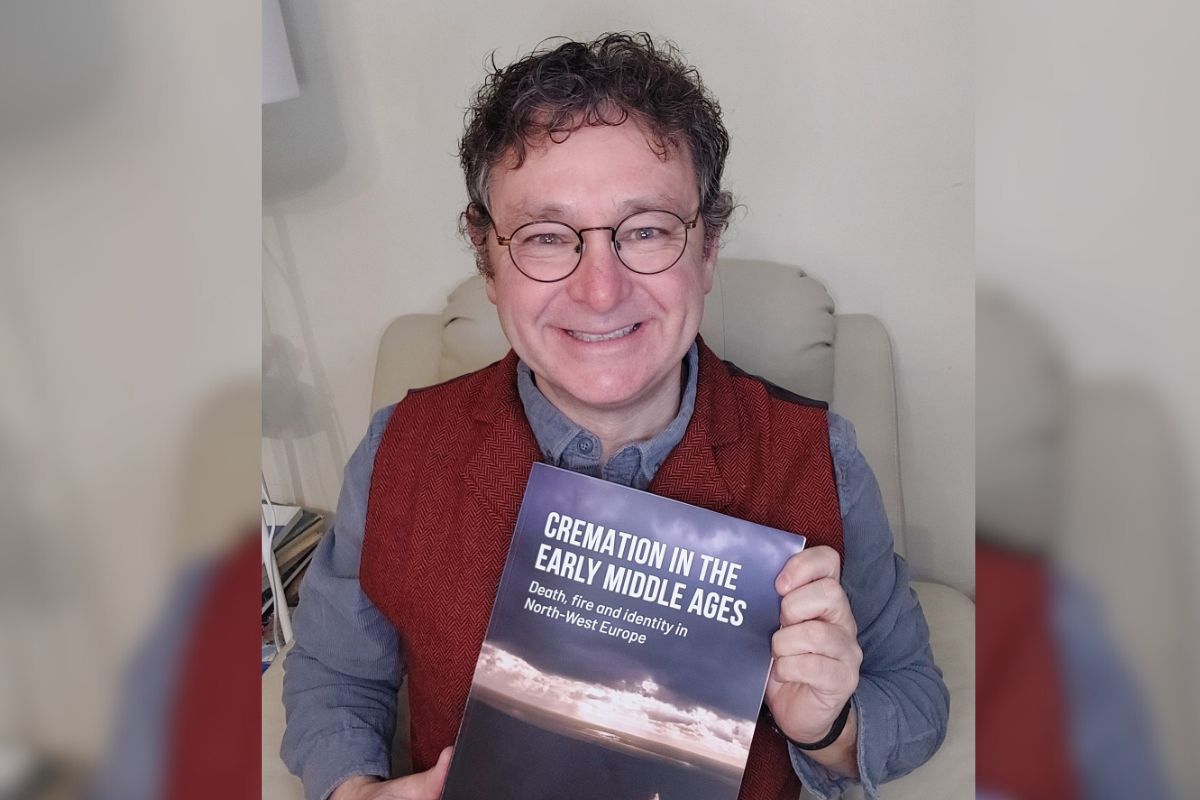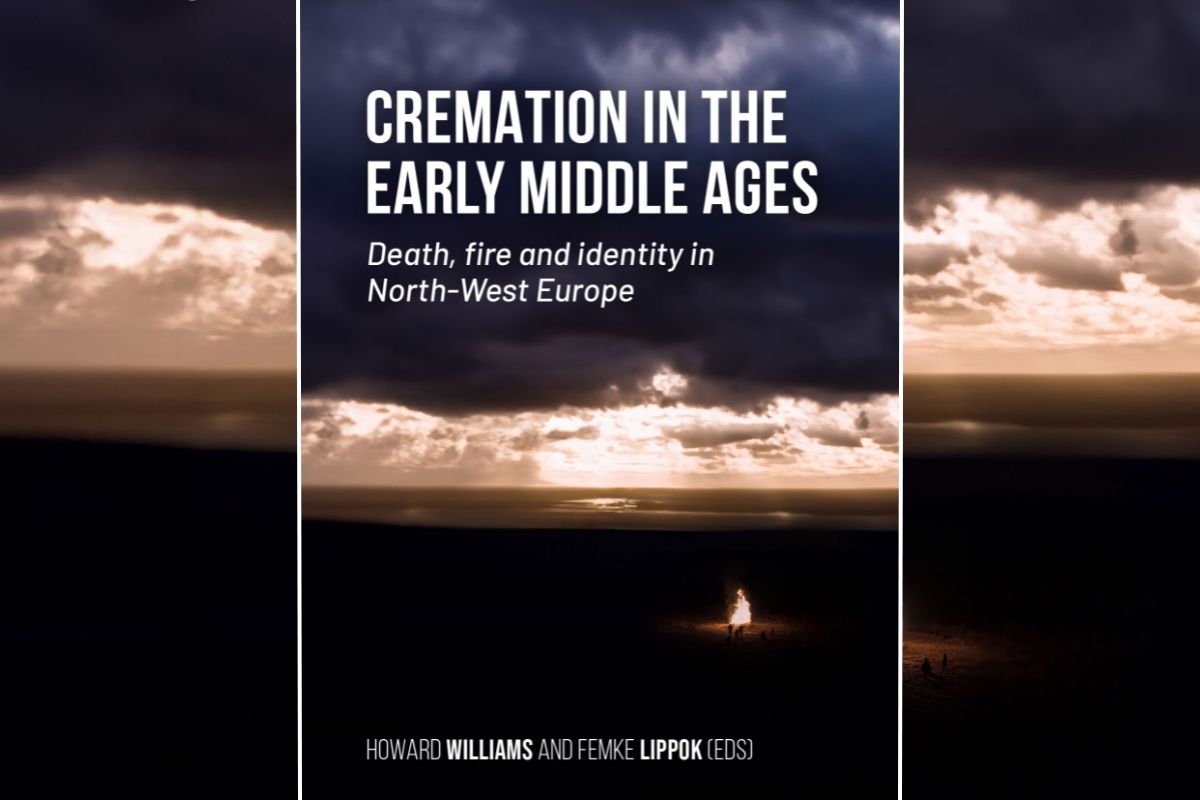New book explores death, fire and identity to share untold stories from the past
A new publication is exploring an important and diverse archaeological component in the investigation of death and identity in the early medieval period.

From a rare case of a possible ‘Viking’ cremation in northern France to new evidence for cremation practices across Ireland and northern Britain in the early medieval period, a book co-edited by a University of Chester Professor is sharing the latest discoveries on this lesser-known aspect of European history.
Cremation in the Early Middle Ages - Death, fire and identity in North-West Europe, edited by Howard Williams, Professor of Archaeology at the University of Chester and Femke Lippok of Leiden University in The Netherlands, will be launched with a free online event on Thursday, December 12.
The brand-new collection of articles, published with Sidestone, draws together the latest research and thinking on early medieval cremation, seeking to answer the question of ‘when, where, how and why did early medieval people cremate their dead?’
It takes readers on a journey through 19 chapters exploring cremation practices from the fifth to the eleventh centuries CE in the UK and Ireland, Fennoscandia, Frisia, Denmark, Germany, Belgium, and France.
The new insights include the rare discovery, in France, of a cremated human body, buried with artefacts with Scandinavian parallels: a bead, key, knives and dress accessories, dating to the ninth century CE. The remains were found during an excavation at La Chapelle-Saint-Mesmin, Loiret. Given this is located about 1.5km from the nearest attested historic churchyard, it raises the possibility it is the burial of a Scandinavian ‘Viking’ raider and/or trader visiting the region.
The instance is included in a chapter by Vanessa Brunet, Erwan Nivez and Astrid A Noterman exploring fresh evidence of cremation as a practice in the Merovingian and Carolingian periods (fifth to ninth centuries CE) of northern France where burial unburnt (inhumation) was the commonplace disposal method.

Professor Williams said: “Cremation has tended to be afforded limited treatment in accounts of death, burial and commemoration in the early medieval period, sometimes still over-simplistically characterised as ‘early in date’, ‘pagan’ and ‘Germanic’, but sometimes ‘Norse’, ‘Celtic’ or ‘Slavic’.
“Yet traces of cremation practices can be found alongside the graves of those buried without cremation, and other dimensions of death ritual in varying forms and frequencies, over large tracts of the former Roman Empire and beyond its borders.
“Presenting our developing interdisciplinary theories, refined field and lab-based methods, and a wide range of fresh discoveries, we have sought, for the first time, to explore the rich and varied evidence for early medieval cremation practices within the context of new scientific applications and contextual analyses, and ‘debunk’ some of the traditional associations.”
Explaining more behind the research, he added: “Cremation constitutes an important and diverse archaeological component in our investigation of death and identity in the early medieval period.”
The structure and style of the book represents a departure from the norm, creating an accessible yet rigorous and up-to-date resource that differs from the standard edited collection. As well as a co-authored introduction, each chapter constitutes an interview between the editors and key researchers, supported by a series of fact boxes highlighting key ideas, methods and techniques, sites, graves and discoveries.
Cremation in the Early Middle Ages aims to be of interest to students and scholars of medieval archaeology and history, as well as global researchers in the archaeology, bioarchaeology and anthropology of mortuary practices, and death studies more broadly.
The online book launch will include talks by the editors and authors, special guest talks by key experts in the archaeology of death and burial, and an open discussion about the future directions of research on burning the dead in the early medieval period.
Further details about the book are available at: https://www.sidestone.com/books/cremation-in-the-early-middle-ages
